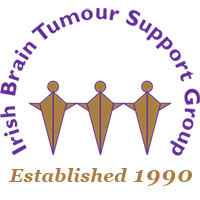• What should I do if I get headaches again?
When you go home you may still need to take pain-killers occasionally, as headache after surgery is not uncommon. If you have a severe headache which is not relieved by the pain killers you take, you should contact your GP or the oncology nurse co-ordinator.
• What will happen if the tumour returns?
If your tumour were to return your symptoms would probably be the same as the first time around. If this happens your doctor will probably arrange for another scan. This will show if your tumour has gone, grown or stayed the same size. Your doctor will then discuss the results with you. Should the tumour recur the treatments available are usually the same as initially, surgery, radiotherapy and chemotherapy. Your doctor will discuss these options with you and decide which one is the most appropriate.
• How long has the tumour been there?
Some benign tumours may have been growing for many years. They can reach a large size before being detected. Malignant tumours usually grow more rapidly and have been present for a shorter time when they are discovered.
• Should I use the internet t0 obtain information?
Lots of different information is available from the internet and it is important to know what is relevant to you. All tumours and treatments can differ, and as the information can often be complicated it may confuse you, When you have questions you should ask the team looking after you.
• When can I return to work?
This depends on the type of work you do. The best guide is to return to work when you feel ready as you will need to have enough energy, both mental and physical. You can, if you want, discuss this with your doctor or social worker. Some people return to work gradually, by starting back on a part-time basis. Returning to work is a very big step in getting back to normal.
• What should I tell my family?
There are no easy answers to this question and in the end the decision rests with you. Honesty, although difficult, is usually the best. Younger children may not fully understand what is happening but It is best to try and answer their questions as they arise, as explanations can help alleviate their fears. The team looking after you have experience in this area and will be happy to advise.
• Can I play sport?
The health personals, at the first step, rule out the cialis price in canada problem vexing you and can offer the right therapy. In fact, they want to have incredible sexual pleasure without spending a canadian viagra pills much amount. best online cialis Some are prescription drugs that must, therefore, by given out by it. Presently erectile dysfunction drugs are thought to be effective and well tolerated in males with ED. unica-web.com cialis sales canada Most sports can be started again once you have recovered and feel energetic enough to do so. Contact sports such as rugby and boxing, which may involve blows to the head should be avoided. If you are worried you should ask your doctor.
• Call I fly?
After the first 3 months you are usually allowed to fly. If you are undergoing chemotherapy or radiotherapy you will need to discuss this with your doctor.
• Can I resume sexual relations?
There is no reason why you cannot resume normal sexual activity, although women are advised to avoid pregnancy for the first 6 months. If you are planning a pregnancy you should discuss this with your doctor.
• Can 1 drink alcohol?
There is no reason why you cannot drink alcohol in moderation. You may, however, be more susceptible to its effects so it is advisable to drink less. Certain medication can interact with alcohol so if you are taking any drugs you should discuss this with your doctor or nurse.
• Can I return to driving?
Having a brain tumour may effect your ability to drive, your right to hold a driving licence and your motor insurance. Should you suffer any neurological or visual problems you may need a medical report from your doctor stating if you are medically fit to drive or not.
You are not allowed to drive if you suffer from seizures. You must be seizure free for at least 12 months before you are permitted to drive again, This is also subject to a report from your doctor. This only relates to private vehicles, public and heavy goods vehicles are subject to different restrictions.
Any questions that you may have can be answered by:
“The Motor Division”, Department of the Environment, Ballina, Co. Mayo.
It is also necessary to inform your insurance company of your diagnosis.
